Detailed introduction of Technical University of Cluj-Napoca:
Introduction and Overview
The Technical University of Cluj-Napoca is located in Cluj-Napoca, Romania. It is one of the country's important technical higher education institutions. It plays an important role in engineering technology, scientific research and talent training. It has a large number of students and faculty, and provides rich academic courses and research opportunities.
History and Establishment
The history of the university can be traced back to the Industrial College in 1920. In 1948, the Cluj Mechanical College was established in accordance with the August Education Reform Law. In 1953, it was renamed Cluj-Napoca Polytechnic Institute. In 1992, it was officially renamed Technical University of Cluj-Napoca. In 2012, the university absorbed the University of the North of Baia Mare.
School Strength
Faculty: It has 917 academic staff members who can provide professional teaching and guidance to students.
Disciplines and majors: There are twelve colleges, covering many engineering and technical fields such as architecture, urban planning, automation and computer science, automobiles, mechatronics and mechanical engineering, civil engineering, electronics, telecommunications and information technology, materials and environmental engineering, building services engineering, electrical engineering, industrial engineering, robotics and production management, as well as literature and science, offering undergraduate, master and doctoral degree programs.
Research achievements: There are significant research contributions in the fields of renewable energy, superconductivity, nanomaterials, etc., and actively cooperate with international companies, such as Porsche Romania supports the creation of advanced technology and automotive engineering master's programs, Bosch Global sponsors autonomous driving courses, and Google Romania sets up digital studios for programmers.
Nature of institutions
Public university, funded and managed by the Romanian government.
Educational philosophy
Committed to cultivating professional talents in the field of technology, through high-quality teaching and practice, to enable students to have solid professional knowledge and innovation ability, actively carry out scientific research activities, aiming to solve urgent problems in the global and technological fields, and strive to become one of the important contributors to the field of science and technology in Europe.
Key laboratories and disciplines
Key laboratories: It has research centers such as the CERTETA Sheet Metal Technology Center, which was established in 2000.
Advantageous disciplines: It has strong strength in the field of engineering and ranks 751st in the engineering discipline ranking of US News. Computer science is in the 801-1000 range in the THE 2024 discipline ranking, engineering is in the 1001+ range, and physical science is in the 801-1000 range.
Faculties
Including the School of Architecture and Urban Planning, the School of Automation and Computer Science, the School of Automotive, Mechatronics and Mechanical Engineering, the School of Civil Engineering, the School of Electronics, Telecommunications and Information Technology, the School of Materials and Environmental Engineering, the School of Building Services Engineering, the School of Electrical Engineering, the School of Industrial Engineering, Robotics and Production Management, the School of Engineering (in Baia Mare), the School of Literature (in Baia Mare), the School of Science (in Baia Mare), etc.
Ranking
In the QS World University Rankings, it is in the 1201-1400 range.
It is ranked in the 1501+ range in the THE World University Rankings 2025, and in the 801-1000, 1001+, and 801-1000 ranges in the 2024 THE computer science, engineering, and physical science subject rankings.
Ranked 1564th in the US News Global University Rankings, 553th in the Best Global Universities in Europe, and 9th in the Best Global Universities in Romania.
Costs
For international students, undergraduate and master's tuition fees range from 9750 lei to 18600 lei per year, which is about 5000 US dollars per year. Tuition fees for local citizens are lower, at least 216 US dollars per year. The school may offer financial support programs such as scholarships.
Campus Environment
Campus Facilities: Located in the urban campus of Cluj-Napoca, it is suitable for students who are accustomed to independence and like the hustle and bustle of big cities. The school has learning facilities such as libraries, providing students with rich learning resources.
Academic atmosphere: With a strong academic atmosphere, various academic lectures, seminars and other activities are often held, and well-known scholars and experts from home and abroad are invited to communicate and give lectures, which promotes academic exchanges and development.
Cultural activities: Focusing on the comprehensive quality training of students, a variety of campus cultural activities are organized, such as cultural festivals, sports competitions, etc., which enrich students' extracurricular life. At the same time, as a university with a high degree of internationalization, various international cultural exchange activities will be held to promote exchanges and integration between students from different cultural backgrounds.
-

Grigore T. Popa University of Medicine and Pharmacy
-
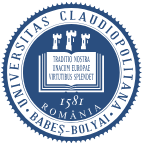
Babes-Bolyai University
-
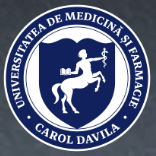
Carol Davila University of Medicine and Pharmacy
-
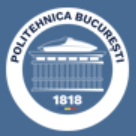
Politehnica University of Bucharest
-
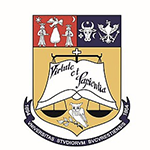
University of Bucharest
-

Technical University of Cluj-Napoca
-
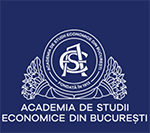
Bucharest Academy of Economic Studies
-

1st December 1918 University of Alba Iulia
-

West University of Timisoara
-
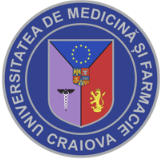
University of Medicine and Pharmacy of Craiova
-

Mesoamerican University
-

Istmo University
-

Mariano Galvez University of Guatemala
-

Regional University of Guatemala
-

Galileo University
-

Francisco Marroquín University
-

Rafael Landívar University
-

University of the Valley of Guatemala
-

University of San Carlos of Guatemala
-

Technological Institute of Tlaxcala Plateau
-

Golfo University
-

Technological University of South Sonora
-

Technological University of Huejotzingo
-

Tizimín Institute of Technology
-

Chilpancingo Institute of Technology
